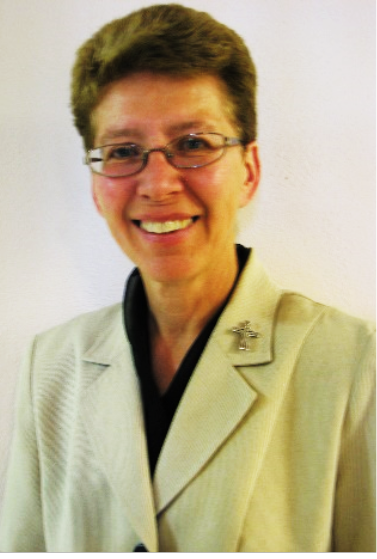- By Sr. Mary Valerie Schneider
Magi on the Move Among my favorite Christmas cards to give and receive are those with the Magi. The silhouettes of camels and riders crossing the desert in the twilight stirs me to join the trek. “Come on! Come let us adore!” the pictures call. This year I received a
- By Sr. Mary Valerie Schneider
Edith Stein wrote: “A new year at the hand of the Lord—we do not know whether we shall experience the end of this year. . . . The Divine Child offers us his hand to renew our [commitment]. Let us hurry to clasp this hand.” Is Edith Stein’s thought yours
- By Sr. Mary Valerie Schneider
Whenever we are open to the future, the present is rich in possibilities. Does our openness to the future give us hope for a new year, a new decade, or a new century of unity and peace? We know that in the process of evolution new entities rise up as
- By Sr. Mary Valerie Schneider
Almost 14 billion years ago God knew what God would give the world as a Christmas present. God’s creative genius began fashioning the universe. (God was the first to make Christmas presents and fill them with love.) In his infinite loving plan, the incarnation of Christ became one seamless process
- By Sr. Mary Valerie Schneider
We sing Christmas carols, attend midnight Mass, and exchange gifts, because Mary gave birth to Jesus. Because of her, God Almighty appeared on earth—and Christ will come again in all his glory when we participate in birthing the Christ. How do we do this? The universe is heading toward its
- By Sr. Mary Valerie Schneider
The letter to the Hebrews claims “a body you have prepared for me.” Billions of years ago God prepared a body for his Son by creating a universe. Then in the fullness of time God’s power in material things came to a climax in the Incarnation of Jesus. On that
- By Sr. Mary Valerie Schneider
There are two parts to Advent, the final part beginning on December 17 and ending on Christmas. On these days the antiphon for the Magnificat in Evening Prayer addresses Christ with the seven Messianic titles. Sometimes this second part of Advent is called the “Golden Nights.” The O Antiphons have
- By Sr. Mary Valerie Schneider
Today’s Second Reading tells us that the “peace of God . . . will guard [our] hearts and minds in Christ Jesus.” Guarding? Isn’t that for soldiers and police? But peace guarding our hearts? In another place in Scripture we read that Christ is our peace (Micah 5:4 and Eph.
- By Sr. Mary Valerie Schneider
There’s a prayer tucked into today’s Second Reading at Mass for this Second Sunday of Advent: “And this is my prayer, that your love may overflow more and more with knowledge and insight.” We all know persons who are difficult to love. They live in our own houses, among our
- By Sr. Mary Valerie Schneider
Let’s make Advent an Advent-ure by becoming more aware of God’s coming. One way is to consider the three M’s of Advent. The first M stands for Memory. In the four weeks of Advent we pull out the Church’s scrapbook and look at the many persons and events leading





